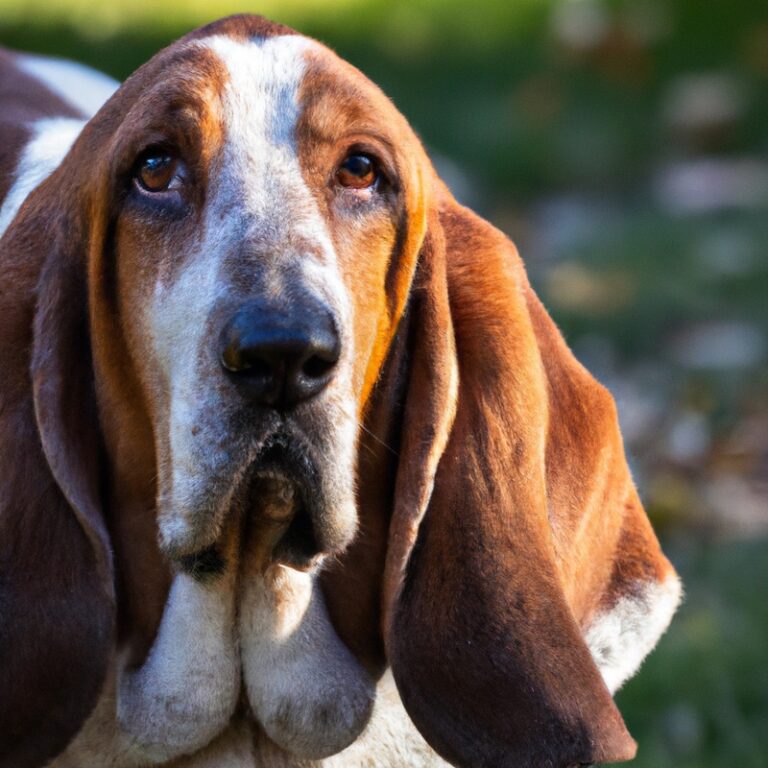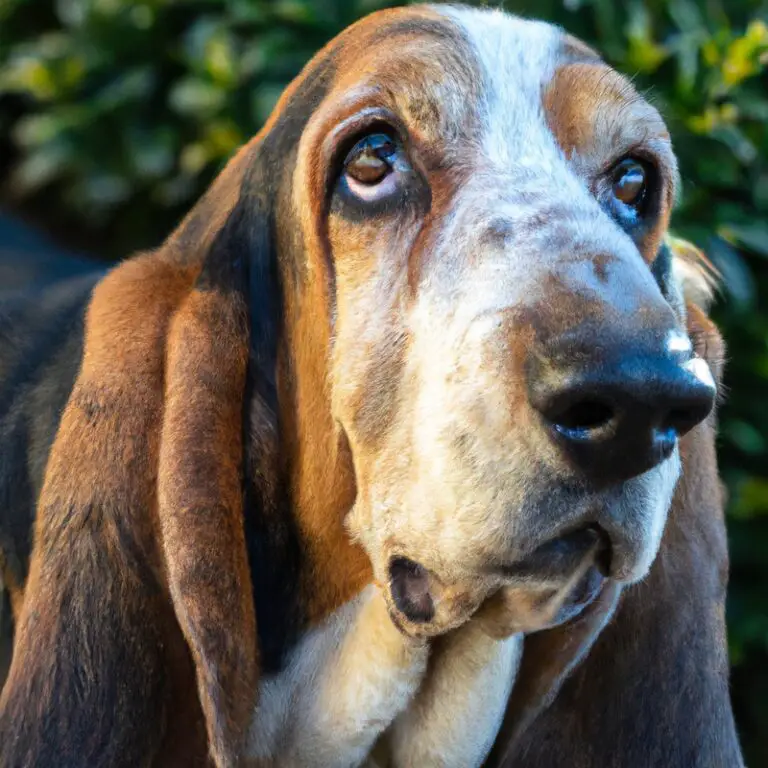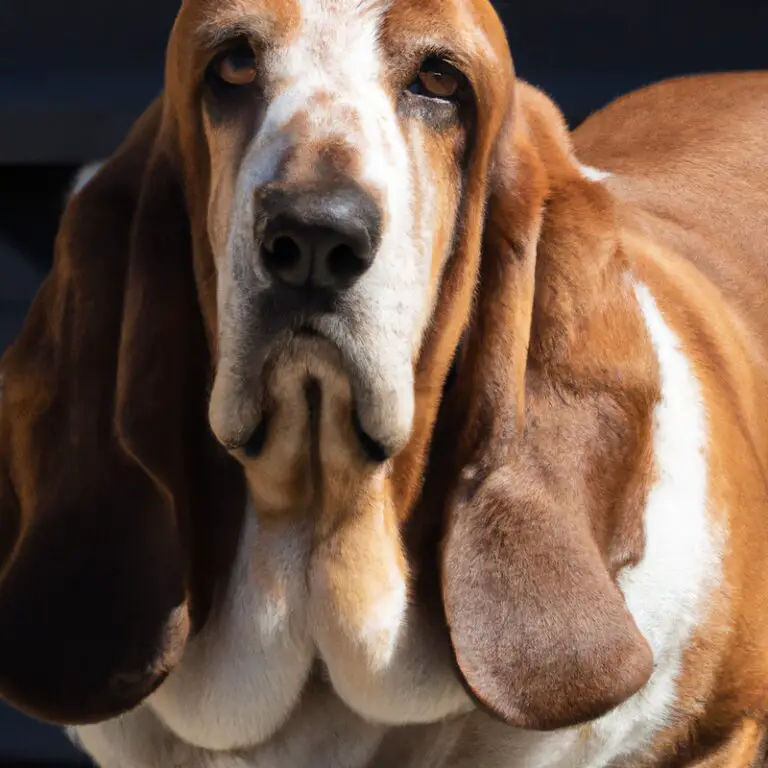How Do Basset Hounds Handle Being Home Alone During The Workday?
Key Takeaways:
- Basset Hounds are generally comfortable being left alone during the workday.
- They may experience separation anxiety, but this can be managed through proper training and mental stimulation.
- Providing them with toys and interactive activities helps keep them occupied while alone.
- Regular exercise before leaving them alone can help prevent destructive behavior.
Are you a proud Basset Hound owner who dreads leaving your furry friend alone during the workday? Trust me, I understand the worry.
As a fellow Basset Hound enthusiast, I know just how attached these lovable dogs can become.
But fear not! In this blog article, we’ll explore how Basset Hounds handle being home alone and discover ways to ensure their well-being and happiness. From understanding their breed characteristics to providing mental stimulation and addressing separation anxiety, we’ve got you covered.
So, let’s dive in and learn how to keep our Basset Hounds content while we’re away.
| Pros | Cons | |
| 1 | Basset Hounds are generally good at entertaining themselves. | Some Basset Hounds may become anxious or develop separation anxiety. |
| 2 | They are typically low-energy dogs and require less exercise. | Solitary Basset Hounds may exhibit destructive behaviors. |
| 3 | They are known to be independent and enjoy their alone time. | Leaving a Basset Hound alone for long periods regularly may lead to boredom or depression. |
| 4 | Basset Hounds are generally not prone to excessive barking or howling. | Some Basset Hounds may become excessively vocal when left alone. |
Understanding the Basset Hound breed
Physical and behavioral characteristics of Basset Hounds
Basset Hounds are known for their unique physical and behavioral characteristics.
Their long ears, droopy eyes, and low-slung bodies make them instantly recognizable.
They have a friendly and gentle nature, making them excellent family pets.
Bassets are also known for their deep, soulful barks and their impressive sense of smell.
They have a strong desire to follow scents, which can sometimes lead to stubbornness during training.
It’s important to provide them with regular exercise and mental stimulation to keep them happy and prevent boredom.
Additionally, Bassets are prone to certain health issues, such as obesity and back problems, due to their long bodies and short legs.
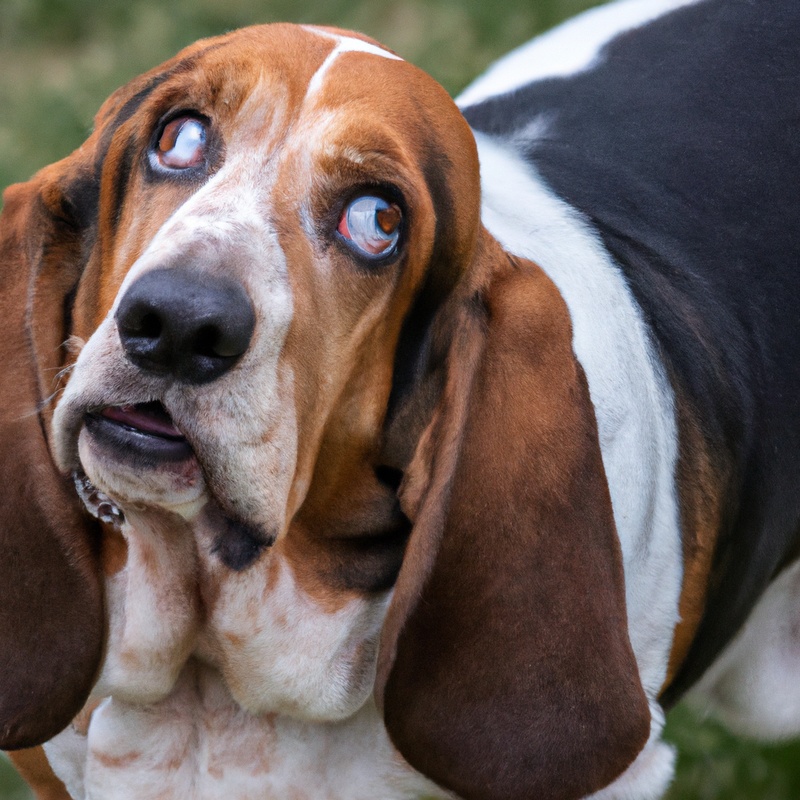
Their tendency to form strong attachments
Basset Hounds have a strong tendency to form deep attachments with their owners. These loyal dogs thrive on human companionship and seek constant attention and affection.
They appreciate being part of a close-knit family and can become extremely attached to their primary caregivers.
This attachment can make it difficult for them to be left alone for long periods of time, as they may experience separation anxiety. It is important to provide them with plenty of love and attention to fulfill their emotional needs and ensure their well-being.
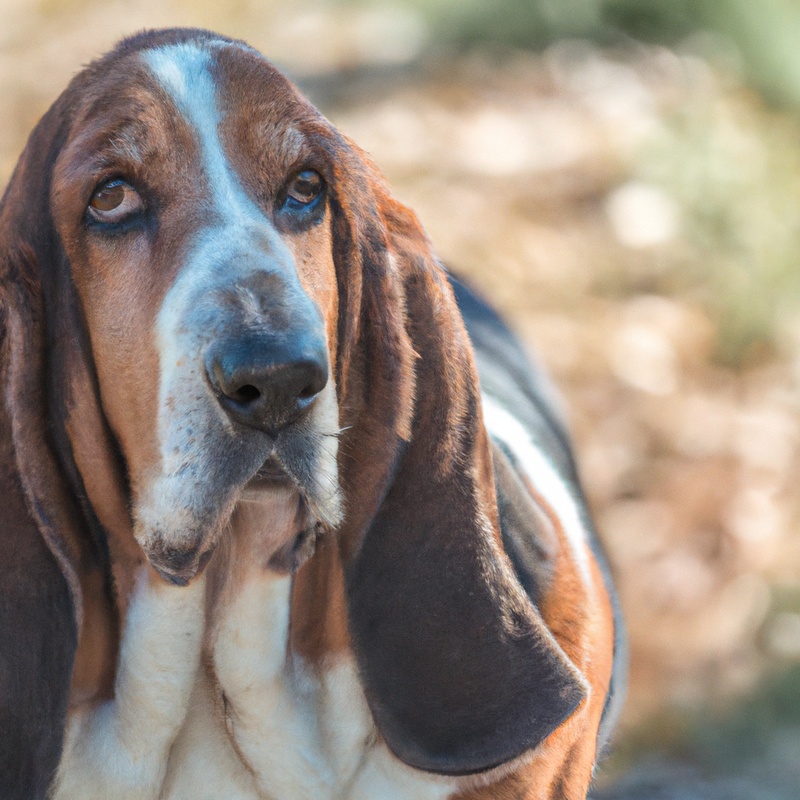
Importance of socialization and training for Basset Hounds
Socialization and training are essential for Basset Hounds. It helps them develop good behavior, adapt to different situations, and become well-rounded pets.
Socialization exposes them to new people, animals, and environments, preventing fear or aggression.
Training teaches them commands, basic manners, and how to walk on a leash. It also stimulates their minds and strengthens the bond between you and your Basset Hound.
Early and consistent socialization and training set the foundation for a happy and well-behaved companion.
Common challenges faced by Basset Hounds when left alone
Basset Hounds can experience a few challenges when left alone. One common challenge is separation anxiety, which can lead to destructive behavior like excessive barking or chewing.
Another challenge is their tendency to become bored easily, as they are a highly intelligent breed.
Bassets may also struggle with being inactive for long periods, which can lead to weight gain and health problems. Providing mental stimulation, exercise, and a comfortable environment can help alleviate these challenges.
It’s important to understand and address these issues to ensure your Basset Hound’s well-being when you’re not at home.
Creating a comfortable and safe environment for the Basset Hound
To create a comfortable and safe environment for your Basset Hound, there are a few key things to keep in mind.
Firstly, make sure they have a cozy and designated space in your home where they can relax and feel secure.
This could be a crate or a comfortable bed.
Secondly, provide them with plenty of toys and interactive puzzles to keep them mentally stimulated and entertained.
Thirdly, ensure that the area they have access to is free from any hazards or potential dangers.
Lastly, consider using baby gates or barriers to limit their access to certain areas of your home, especially if there are spaces they could get stuck or things they could chew on.
Creating a comfortable and safe environment will help your Basset Hound feel happy and at ease when you’re away.
Tips for keeping a Basset Hound entertained and engaged
Providing mental stimulation through toys and puzzles
Keeping your Basset Hound mentally stimulated is important, especially when they are home alone.
Toys and puzzles can help provide the mental exercise they need.
Consider interactive toys that dispense treats or require problem-solving.
Puzzle toys with hidden compartments can keep your Basset Hound entertained and challenged.
Squeaky toys and plush toys can also offer entertainment.
Rotate the toys regularly to keep them interesting.
Just make sure the toys are safe and durable for your Basset Hound to play with.
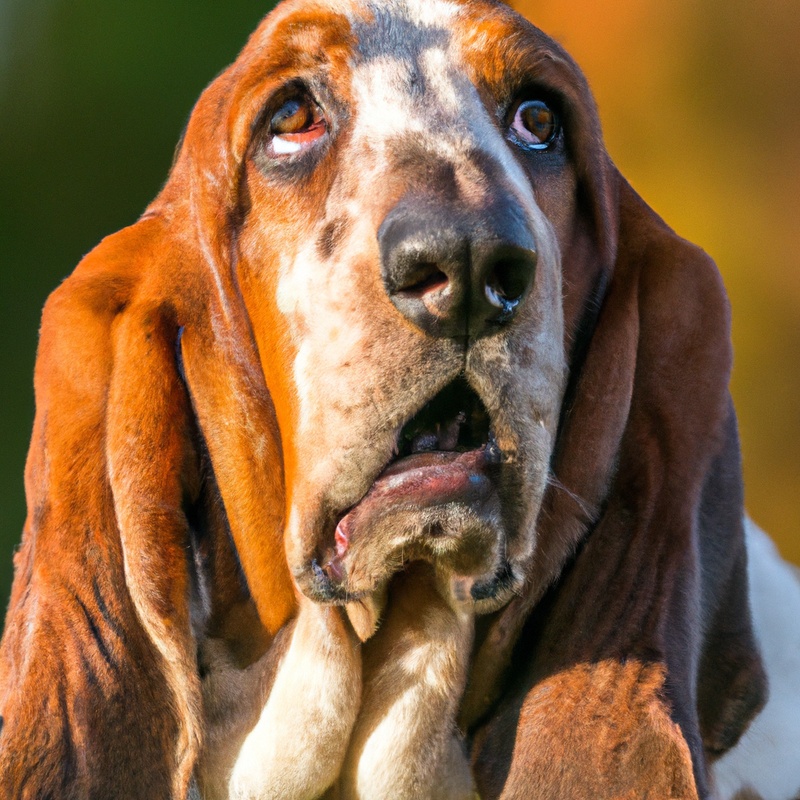
Incorporating regular exercise into their daily routine
Regular exercise is essential for keeping Basset Hounds happy and healthy. Incorporating exercise into their daily routine helps prevent boredom and destructive behavior.
Take them for daily walks, allowing them to explore and sniff around.
Basset Hounds have a strong sense of smell, so incorporating scent-based activities like hide-and-seek or scent-tracking can provide mental stimulation. Play games like fetch or tug-of-war to keep them active.
Engaging in regular exercise not only keeps Basset Hounds physically fit but also helps to stimulate their minds.
Enriching their environment with scent-based activities
Dogs, including Basset Hounds, have a strong sense of smell. To enrich their environment, try incorporating scent-based activities.
One option is to hide treats around the house for them to find, stimulating their sense of smell and providing mental stimulation.
You can also use interactive puzzle toys or engage in scent-tracking games. Another idea is to buy or make scent pads or blankets that have the comforting smell of their favorite person or a familiar environment.
These activities can keep your Basset Hound entertained and engaged while you’re away.
Consideration of a doggy daycare or hiring a dog walker
If you’re concerned about leaving your Basset Hound alone for long periods, doggy daycare or hiring a dog walker could be great options.
- Doggy daycare provides socialization and playtime with other dogs, ensuring your Basset gets plenty of exercise and stimulation.
- Hiring a dog walker gives your pup a chance to stretch their legs and burn off energy during the day.
Consider your Basset’s needs, energy level, and budget when deciding which option is best for you. It’s important to choose a reputable daycare or walker to ensure your dog’s safety and well-being.
Promoting emotional well-being for Basset Hounds when alone
Using interactive treat dispensers and food puzzles
Interactive treat dispensers and food puzzles are great ways to keep your Basset Hound mentally stimulated and entertained when they’re home alone.
These toys challenge their problem-solving skills and provide a fun way to earn rewards.
Simply fill the dispenser or puzzle with some of their favorite treats or kibble, and let them figure out how to access the food.
This not only keeps them occupied, but also helps prevent boredom and destructive behavior.
It’s important to choose toys that are specifically designed for dogs and supervise them during playtime to ensure their safety.
Leaving comforting scents or music for relaxation
Leaving comforting scents or music can help relax your Basset Hound when they’re home alone. The familiar scent of their favorite blanket or toy can provide a sense of security.
Soft, calming music can also create a soothing environment.
You can leave scented items near their bed or play relaxing music through a speaker. These simple gestures can help your Basset Hound feel more at ease and reduce any anxiety they may have when left alone.
Utilizing positive reinforcement and rewarding good behavior
Positive reinforcement is key when it comes to promoting good behavior in your Basset Hound. It’s all about rewarding them for the behaviors you want to encourage and ignoring or redirecting them from unwanted behaviors.
This can be as simple as praising and giving them a treat when they listen to a command or display desirable behavior.
Remember to be consistent and patient in your training approach. Over time, your Basset Hound will understand what is expected of them and be more inclined to exhibit positive behaviors.
Gradual training for longer periods of alone time
To help Basset Hounds adjust to longer periods of alone time gradually:
- Start with short absences: Begin by leaving your Basset Hound alone for just a few minutes and gradually increase the time over several days or weeks.
- Set a routine: Establish a consistent schedule for leaving and returning home to create a sense of predictability and security for your dog.
- Provide distractions: Leave interactive toys or treat puzzles to keep your Basset Hound mentally stimulated while you’re away.
- Practice positive reinforcement: Reward calm behavior when leaving and returning home to reinforce a positive association with alone time.
- Seek professional help if needed: If your Basset Hound struggles with longer periods of alone time, consider consulting a dog trainer or behaviorist for personalized guidance.
Seeking assistance for Basset Hounds with separation anxiety
Identifying signs of separation anxiety in Basset Hounds
Separation anxiety in Basset Hounds can manifest through various signs. Some common indicators include excessive barking or howling when left alone, destructive chewing or digging, urinating or defecating indoors, attempting to escape, and pacing or restlessness.
Other signs might include loss of appetite, excessive drooling, and excessive panting or shaking.
It’s essential to recognize these behaviors as potential signs of separation anxiety in order to address the issue effectively. Consulting with a professional dog trainer or behaviorist can help determine a suitable plan to alleviate your Basset Hound’s separation anxiety.
Consultation with a professional dog trainer or behaviorist
If your Basset Hound is experiencing separation anxiety, seeking assistance from a professional dog trainer or behaviorist can be incredibly helpful. These experts have the knowledge and experience to assess your dog’s behavior and develop a personalized plan to address separation anxiety.
They can provide guidance on training techniques, behavior modification, and potential medication or natural remedies.
Working with a professional will give you the support and guidance you need to help your Basset Hound feel more comfortable and secure when left alone.
Exploring potential medication or natural remedies
When it comes to exploring potential medication or natural remedies for Basset Hounds with separation anxiety, it’s important to consult with a veterinarian or a professional dog trainer. They can provide guidance on the most suitable options for your specific situation.
Medication such as anti-anxiety drugs may be prescribed in severe cases, while natural remedies like calming supplements or pheromone diffusers can also be considered.
It’s crucial to follow the recommended dosage and monitor your Basset Hound’s response closely, making adjustments as necessary. Remember, every dog is unique, so what works for one may not work for another.
Developing a personalized plan to address separation anxiety
To develop a personalized plan to address separation anxiety in Basset Hounds, it is important to take the individual needs of your dog into account.
Here are some steps you can consider:
- Start with gradual desensitization: Gradually increase the time you spend away from your Basset Hound, starting with short intervals and gradually lengthening them. This helps your dog become more comfortable being alone.
- Create a safe and comforting environment: Provide your dog with a comfortable and secure space when you’re away. Use a crate or a designated area with familiar items, such as toys, bedding, and clothing with your scent.
- Provide mental stimulation: Use interactive toys and treat dispensers to keep your Basset Hound engaged and mentally stimulated while you’re gone. Puzzle toys and scent-based activities can help occupy their time.
- Seek professional help if needed: If your Basset Hound’s separation anxiety persists or worsens, consult with a professional dog trainer or behaviorist for personalized advice and guidance.
Remember, each Basset Hound is unique, so it may take some trial and error to find the best strategies that work for your dog.
Patience and consistency are key in addressing separation anxiety and helping your Basset Hound feel more secure when left alone.
Final Verdict
Understanding the needs of Basset Hounds when left alone is crucial for their well-being.
These dogs have a strong attachment to their owners and can experience separation anxiety.
To create a comfortable environment, provide mental stimulation through toys and puzzles, incorporate regular exercise, and engage their sense of smell.
Promoting emotional well-being can be achieved through interactive treat dispensers, leaving comforting scents or music, and using positive reinforcement.
However, if separation anxiety persists, seeking assistance from a professional trainer or behaviorist may be necessary.
Remember, with the right care and attention, Basset Hounds can thrive even when left alone during the workday.



